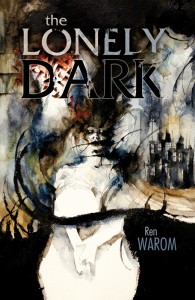The Future Fire has been a great supporter of small press including ourselves and is celebrating its 10th birthday in style, with an anthology of reprints. In order to pay the authors a fair rate for their stories they are kickstarting the process and we are glad to welcome them to Fox Spirit to talk about it all. – Aunty Fox
***
TFFX: Ten Years of The Future Fire
An interview with editor Djibril al-Ayad
Q: How did you first get involved with The Future Fire? Without looking it up, what is the first story you can remember buying, and what did you love about it?
Djibril al-Ayad: I was among a group of friends who founded TFF in 2004, and brought out the first issue in January 2005. Within a few months there were only two of us working on the zine, Bruce and myself, but we’ve had upward of a dozen beautiful collaborators come and go over the years. I remember when onto our (at the time very shallow) slushpile landed the first Terry Grimwood story we were offered, and I was very excited by the grittiness, the humour, the way Tel made unapologetic use of flippant tone and genre cliché in the service of his very dark, very political, almost nihilistic story. It’s not a story without flaws (so few are) but it sure bit me on the ass!
Q: What does the next ten years hold for the world?
DaA: I know I ought to answer this question as a dystopianist (“we’ll be living in a repressive regime where corporate interests hold governments and civil society to ransom”) or post-apocalypticist (“runaway climate change will bring rogue weather, sea-level rise and social instability leading to economic collapse and we’ll all be road warriors”) or even utopianist (“we’ll have seen the error of our ways and thoroughly overthrown the corrupt, late-capitalist establishment”). But I’m a little embarrassed to say that I’m (a) an optimist, and (b) a believer in incremental, peaceful progress (and, needless to say in this political climate, just as often regressiveness!). While I hope and think we will overcome the excesses of the environmentally damaging unfettered markets and warmongers, I think we’ll still be working on it for at least the next ten years. I’m sure we’ll see progress. I’m sure we’ll have our hearts broken again. Just as I’m sure that no science-fictional miracle will come along to make carbon-pollution safe. But we’ll be moving forward, working very hard toward a world where society is more accepting toward people of all genders, sexualities, ethnicities, creeds, beliefs and abilities, and where human (and natural) survival is not subsumed to economic profit. (Does sound a bit utopian when I put it like that, doesn’t it?)
Q: How do you assess a story and decide whether to publish it or not?
DaA: On the one hand this is the easiest thing in the world—if I read a story from the slushpile, and fall in love with it from the first page (and am still in the blush of first passion by the last line) then I buy it. No questions asked. On the other hand it can be the hardest thing in the world: I can read a story and really really really like it, love the style and language, totally dig where the author’s coming from, and still not be convinced that it really fits what TFF is looking for. In that case, I give at least one or two of our co-editors the chance to talk me into it. Or I can love a story, but one of my co-editors points out a really problematic element (misogyny or cultural appropriation or ableism) that had passed under my privileged radar, and we have to let it go. Or sometimes (and this is my favourite thing, because it’s what collaborative editing is all about) I can be lukewarm about a story on first reading, but one or more of our co-editors talks me into it, shows me the subtlety and elegance of the story, the way that is challenges the lazy status quo, and is “political just by virtue of existing.” These often turn out to be among my very favourite stories in retrospect.
Q: What one story (or work of art, etc.) of all time would you most like to have published/discovered?
DaA: I wish I had been the first person to notice that on the very ancient Colossus of Memnon (2400 BCE statue of Amenhotep III) were inscribed four epigrams by lyric poetess and imitator of Sappho, the princess Julia Balbilla. While we shouldn’t condone the vandalism of 2500 year-old monuments however or by whomever it was committed, to edit, publish and translate this poetry would be a wonderful achievement and a lot of fun. Hells—I might do it anyway some day, but I won’t have been the first.
Q: Tell us more about the TFF tenth anniversary anthology and fundraiser.
DaA: So to celebrate our anniversary we’re going to publish a print anthology, titled “TFFX” to give readers a taste of the last ten years, and to introduce some of what we hope to be doing in the future. It will contain a mix of reprints, modified pieces, mini-sequels, and completely new fiction, illustrations, and creative nonfiction. To make sure we can pay the authors and artists a fair rate, we’re holding a crowdfunding project throughout the month of August—your readers can support the campaign by preordering an e- or paperback copy of the anthology or our other books, or by picking up one of the other fun rewards (artwork, story critiques, customized knitted zombies!). We also have stretch goals that will feed directly into paying a better rate in future TFF projects. Thank you so much for the opportunity to plug this exciting project!

